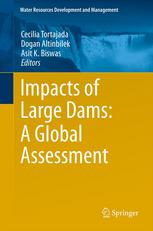

Most ebook files are in PDF format, so you can easily read them using various software such as Foxit Reader or directly on the Google Chrome browser.
Some ebook files are released by publishers in other formats such as .awz, .mobi, .epub, .fb2, etc. You may need to install specific software to read these formats on mobile/PC, such as Calibre.
Please read the tutorial at this link: https://ebookbell.com/faq
We offer FREE conversion to the popular formats you request; however, this may take some time. Therefore, right after payment, please email us, and we will try to provide the service as quickly as possible.
For some exceptional file formats or broken links (if any), please refrain from opening any disputes. Instead, email us first, and we will try to assist within a maximum of 6 hours.
EbookBell Team

4.1
60 reviewsOne of the most controversial issues of the water sector in recent years has been the impacts of large dams. Proponents have claimed that such structures are essential to meet the increasing water demands of the world and that their overall societal benefits far outweight the costs. In contrast, the opponents claim that social and environmental costs of large dams far exceed their benefits, and that the era of construction of large dams is over. A major reason as to why there is no consensus on the overall benefits of large dams is because objective, authoritative and comprehensive evaluations of their impacts, especially ten or more years after their construction, are conspicuous by their absence. This book debates impartially, comprehensively and objectively, the positive and negative impacts of large dams based on facts, figures and authoritative analyses. These in-depth case studies are expected to promote a healthy and balanced debate on the needs, impacts and relevance of large dams, with case studies from Africa, Asia, Australia, Europe and Latin America.